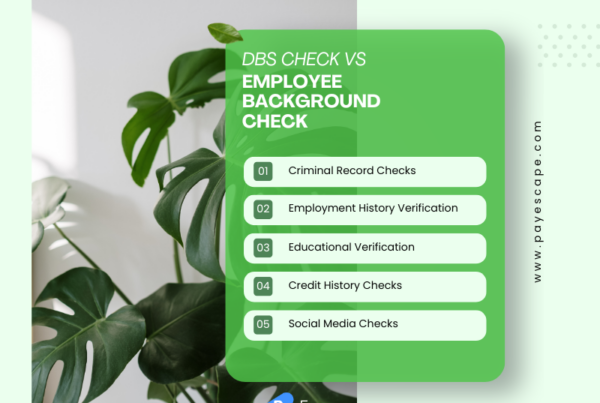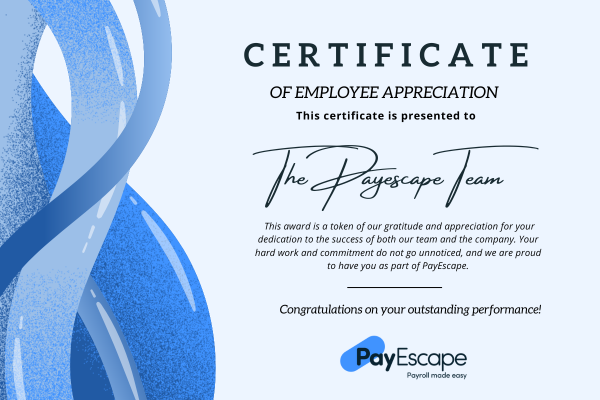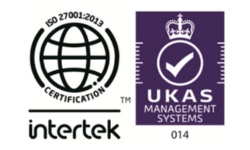Two in five people are looking to quit their jobs within the next six to 12 months, due to a lack of career prospects or career development. Adding on to this, a third of people admitted they would quit their jobs if they didn’t have a good work life balance.
After the covid pandemic, people are now considering whether they’re actually happy with their current job and where they want to be professionally.
And hiring new employees isn’t cheap. From recruitment fees to the cost of onboarding and the time investment of training, if you’re experiencing high staff turnover and always recruiting, it’s probably draining your resources.
As a result, businesses must do all they can to retain existing high quality talent, create an enjoyable and positive work environment, and ensure their employees are properly remunerated when it comes to pay and benefits.
Quiet quitting
If you’ve read the news or been on LinkedIn lately, you’ve probably noticed the term ‘Quiet Quitting’ crop up.
Quiet quitting refers to people opting out of tasks that are outside of their job description, this could be due to a lack of motivation and dissatisfaction within their job role and company. ‘Quiet quitting’ doesn’t actually involve employees quitting, but it’s a clear indicator that team members may be unhappy in their current role.
A study by McKinsey shows that the main reason for people leaving their jobs is due to a lack of professional development and advancement opportunities. Additionally, Three quarters of respondents also stated that they could easily find a job with better pay and benefits.
With quiet quitting being an ever growing situation for businesses, it’s important for brands to consider providing benefits that will genuinely improve employee well-being, and encourage them to stay within their role.
Global Analytics and Advice Firm, Gallup found that companies that invest in employee development are twice as likely to retain their employees while increasing profitability by 11%. This shows that providing career development strategies for employees also benefits businesses in terms of staff and work quality, as well as financial aspects.
Benefits businesses should provide to help retain staff
If businesses want to retain high quality staff, they need to set a precedent for work life balance, improve culture and provide better benefits for their employees. Below are a few examples of benefits businesses could provide:
Give employees the opportunity to decide what they want to learn and develop in
This allows employees to take control of their career progression and will help create a more stable and positive working environment, reducing the chance of quiet quitting and high staff turnover.
Prioritise soft skills as well as hard skills
Linda Jingfang Cai, the VP of talent development at LinkedIn believes that soft skills will be the future of the workplace, as great communication skills, empathy, authenticity and transparency are all important skills to help employees communicate with each other and customers.
To emphasise this employee satisfaction increases by 50% when an employee builds meaningful relationships at work. This will help to improve work quality as well as the quality of work produced and customer relationships within businesses.
Provide time for learning
One of the main setbacks for learning new skills at work, is the lack of time employees have during their working hours to take time out to study. Providing time for employees to learn new skills, will help your work force expand their skill set and create a more positive working environment.
Make learning a key part of your brand values
Some employees worry about colleagues perceiving them to not be working hard enough if they take time out of their work hours to learn new skills. However making learning a part of your brand values, will encourage employees to ask about personal development opportunities and help increase their confidence.
What benefits are employees looking for their employers to provide?
Increased contributions to workplace pensions
A workplace pension is a legal requirement, but some employers may choose to increase their contributions to their employees pension pot. Find out more about pensionable earnings.
Generous annual leave
UK employers are legally obliged to give full time and part time employees statutory holiday pay, but you could choose to offer more annual leave than the legal requirement. Some businesses even opt for unlimited annual leave.
Improved time off policies
Legally, employees are entitled to one year of maternity/paternity or adoption leave, split into Ordinary Maternity Leave (OML), and Additional Maternity Leave (AML). However, many employers choose to give generous maternity and paternity packages, in order to attract and retain staff members, and offer a better work/life balance.
The same goes for calculating statutory sick pay.
Childcare vouchers
Some employers offer childcare vouchers, which leads to tax credits. If childcare costs are removed from pay, employees should be made aware.
Childcare vouchers typically operate through a salary sacrifice. This is agreed by the employer to reduce an employee’s cash pay in return for a non-cash benefit. The Childcare Voucher Scheme allows employees to sacrifice part of their pay in return for childcare vouchers. This is done pre-tax, allowing employees to save money on tax and National insurance contributions.
There are several other benefits available. At its core, company benefits should always promote one or more of the following:
● Workplace flexibility
● Meaningful work
● Support for health and wellbeing
● Career development and advancement
Stop treating necessities and essentials as benefits
You may have seen job descriptions or companies websites that list benefits they provide that are actually legal necessities, for example half an hour lunch breaks or 5.6 weeks holiday entitlement.
With people looking for jobs that provide genuine benefits, it’s important for companies to not confuse legal necessities with benefits. This could provide a negative image around the brand, due to it appearing as though they have a lack of respect for their employees, causing high staff turnover.
How can Payescape help you manage your employee benefits?
Our HR Management System, HR Escape, can help streamline your HR function. From enabling you to communicate with your employees on incentives and benefits to day to day tasks like monitoring holidays, recording working time and calculating wages.
With the inbuilt reporting tools you can identify trends such as absenteeism or sickness frequency and make meaningful business decisions based on accurate data.
Our software improves efficiency, stores data safely and improves performance, by allowing your business to focus on other areas instead of managing HR. You can also drive efficiency further by integrating our software with your payroll or time management systems.
Book a demo for our HR Management System here!
If you need support to maximise your employee benefits to get the most from your workforce our HR consultancy service can help too. Take a look here.












